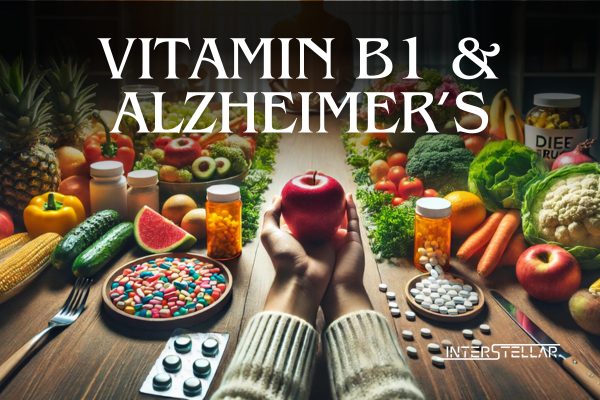The Role of Thiamine in Brain Health and Alzheimer’s Prevention
Experiencing occasional forgetfulness or apathy might seem harmless, but for some, these could be early signs of thiamine (vitamin B1) deficiency. Over time, a lack of thiamine can lead to serious consequences, including an increased risk of Alzheimer’s disease.
Understanding the Importance of Vitamin B1
Vitamin B1 plays a crucial role in brain function. It helps the brain use glucose for energy, and without it, brain cells begin to die. Additionally, thiamine is essential for producing acetylcholine, a neurotransmitter that is deficient in Alzheimer’s patients. Research shows that people with cognitive decline and Alzheimer’s often have low thiamine levels. Trials are ongoing to determine if thiamine derivatives could alleviate symptoms of the disease, but one thing is clear: maintaining adequate thiamine is vital for a healthy brain.
Sources of Thiamine (Vitamin B1) and Vulnerable Groups
In the UK, thiamine is added to fortified bread and cereals, with additional natural sources including whole grains, pork, trout, peas, and beans. While government surveys suggest that most people meet their daily thiamine needs, some groups are more vulnerable to deficiencies:
- Elderly individuals: They often have lower thiamine levels due to dietary or absorption issues.
- Gluten-intolerant individuals: Many avoid cereal products, which are significant sources of thiamine. Unfortunately, gluten-free alternatives are rarely fortified.
- Paleo diet followers: Avoiding cereals leaves this group at risk of inadequate thiamine intake.
- Sausage consumers: In the UK, sulphites used to preserve sausages destroy thiamine. This issue does not occur in countries like the US, where sulphites in sausages are banned.
Ready meals, a staple for many older adults, also pose a problem. Thiamine is heat-sensitive and water-soluble, meaning it can be lost during food preparation. Without proper labelling, it is difficult to gauge the vitamin content of these meals.
Why Diet Matters More Than Supplements
While taking a thiamine supplement might seem like an easy solution, thiamine is poorly absorbed in pill form. Furthermore, multivitamins are linked to an increased cancer risk for some people. Experts recommend a balanced diet as the best way to ensure adequate thiamine and other brain-friendly nutrients.
The Mediterranean diet, rich in thiamine and other nutrients, has been particularly effective in reducing the risk of Alzheimer’s disease. Its combination of vegetables, whole grains, lean proteins, and healthy fats provides a robust defence against cognitive decline.
Moving Forward
Although it remains unclear how much thiamine deficiencies contribute to rising Alzheimer’s rates, there is growing evidence that diet plays a significant role in prevention. By embracing a healthy Mediterranean-style diet and advocating for better food labelling, we can take proactive steps to protect brain health and reduce the risk of Alzheimer’s disease.





